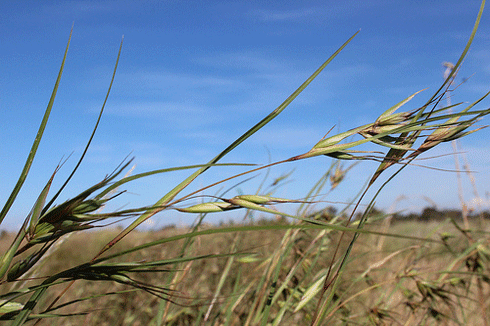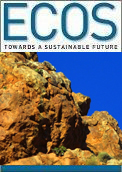
|
Published: 27 February 2012
Prescription for Australia’s stressed ecosystems
The Australian Academy of Science has launched a report on better management of Australia’s stressed ecosystems, and is setting up a national working group to implement its recommendations.

|
|
Kangaroo grass at Bababi Djinanang native grassland in Fawkner in Melbourne’s outer north. Critically endangered grasslands in Melbourne’s peri-urban north and west are among the ecoystems modelled by the scientists behind the Stressed Ecosystems report.
Credit:
Takver
|
Stressed Ecosystems: Better decisions for Australia’s future is the work of around 60 scientists and social scientists brought together from across disciplines and around Australia for a Think Tank in Brisbane late last year.
The document’s recommendations are already on their way to being implemented.
‘State, territory and federal governments have each nominated a representative to work with scientists on the implementation committee’ says Prof. Mark Burgman, convenor of the Think Tank.
‘This approach brings communities, governments and other stakeholders together with scientists who can develop models to predict potential outcomes of particular actions.
‘Modelling the consequences of those actions will enable more informed and hopefully better decision-making.’
The Think Tank participants examined four ecosystems: Queensland’s Bowen and Surat Basins, the Ningaloo Marine Park in Western Australia, Melbourne’s peri-urban grasslands and the Murray-Darling Basin.
‘Each of these ecosystems is subject to competing needs and stresses, such as environmental, mining or tourism industry, urban expansion, recreation and community,’ says Prof. Burgman.
‘Using these specific ecosystems as modelling examples we have developed a way to ensure that each competing interest or voice is heard and integrated into a model for managing the ecosystem in a sustainable way.’
The major recommendations of the report are:
-
Collect more data on Australia’s ecosystems and make it freely available
-
Engage the community in data collection
-
Develop methods to determine the consequences of ecosystem decisions and make these accessible to all stakeholders
-
Involve all stakeholders in ecosystem planning and decision making.
Source: Australian Academy of Science



